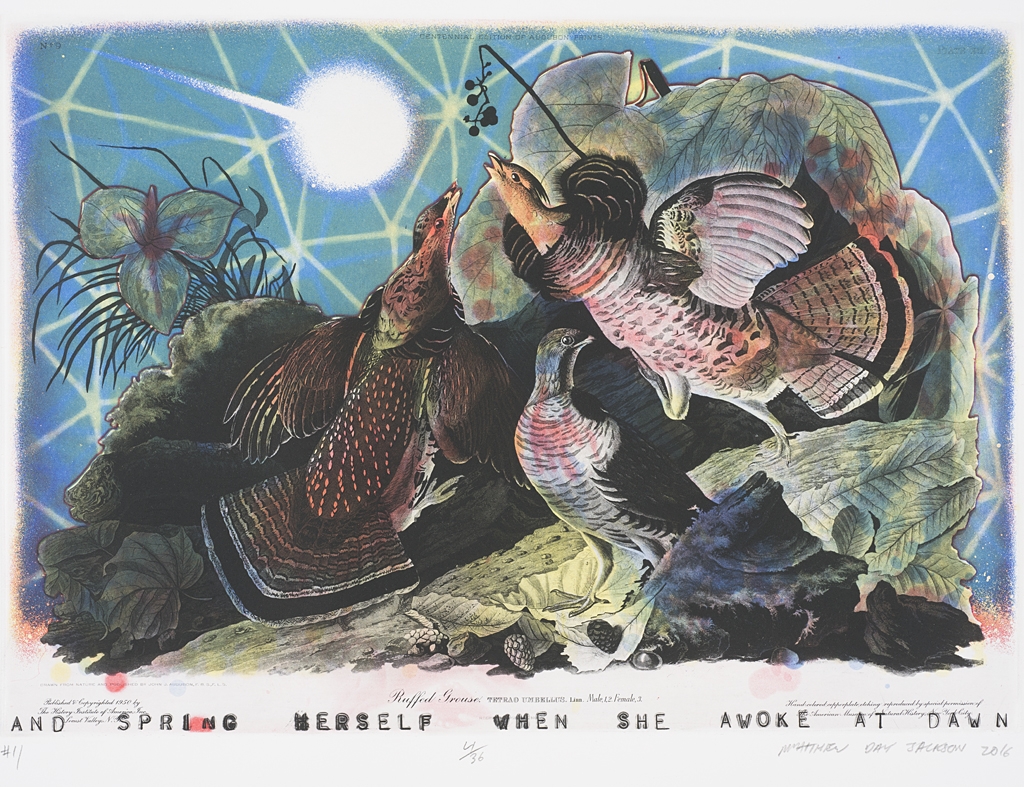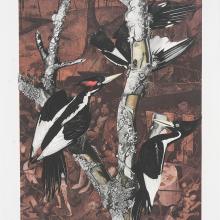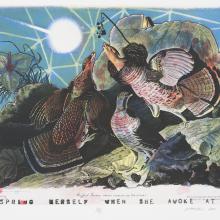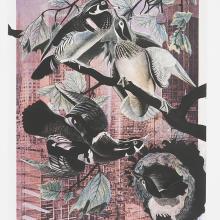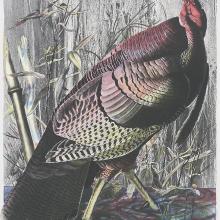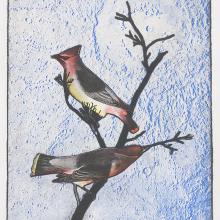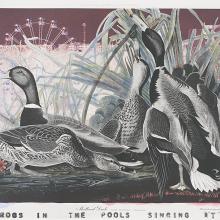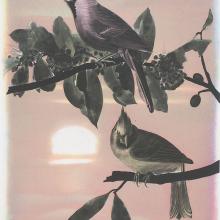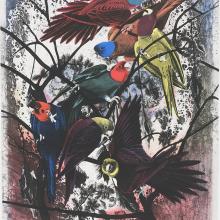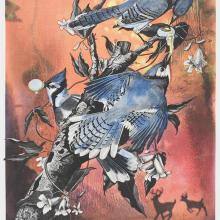Audubon in the Anthropocene: Works by Matthew Day Jackson
Audubon in the Anthropocene highlights a portfolio of prints by contemporary artist Matthew Day Jackson titled There Will Come Soft Rains. In this portfolio, Jackson dramatically reworks late edition etchings from John James Audubon’s iconic series The Birds of America. Each Audubon bird rests amidst potential apocalyptic settings interpreted by Jackson, often referencing final scenarios of the Anthropocene.
Scholars have proposed the “Anthropocene” as a term for our current geological period, characterized by the significance of human intervention in our ecosphere. Although the term has not been formally adopted by the geologic community, interest in and debate about the Anthropocene coincides with scholarly discussions concerning Earth, its life, and our collective future.
The twelve birds featured in Jackson’s portfolio reflect the intertwined relationships of humans and other life on Earth. Two birds, the passenger pigeon and Carolina parakeet, are now extinct, and a third, the ivory-billed woodpecker, is critically endangered. The others, including the wild turkey, cedar waxwings, mallard duck, blue jay, flamingo, snowy egret, wood duck, and ruffed grouse, have populations that have either remained stable or increased since the 1970s, sometimes due to human action and sometimes due to bird adaptation.
Audubon in the Anthropocene explores the intertwined relationship between birds and humans since the publication of The Birds of America in 1827, as well as what may become of these birds, humans, and Earth itself in the future.
This exhibition is supported by KU Student Senate and the Linda Inman Bailey Exhibitions Fund, and includes generous loans from the Linda Hall Library and the Kenneth Spencer Research Library.
Please note: The Spencer Museum continues to assess the safety of reopening our galleries to the public while following best practices for social distancing. Therefore, exhibition dates may change. We appreciate your patience as we respond to this ongoing situation.

